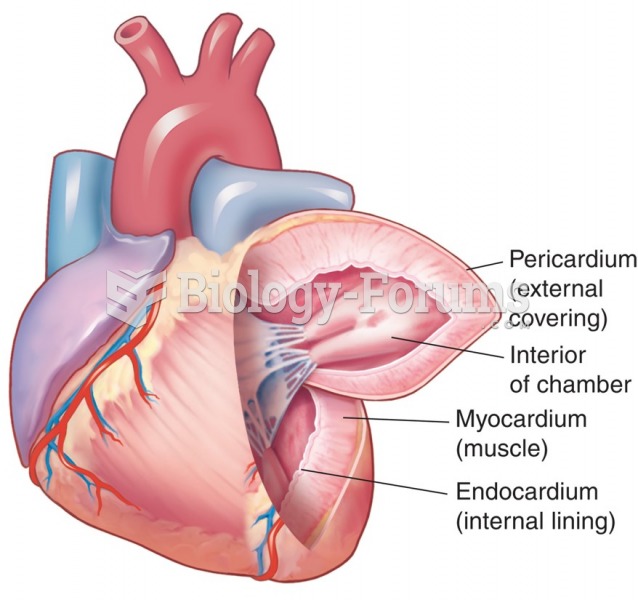|
|
|
Side effects from substance abuse include nausea, dehydration, reduced productivitiy, and dependence. Though these effects usually worsen over time, the constant need for the substance often overcomes rational thinking.
The average office desk has 400 times more bacteria on it than a toilet.
Cocaine was isolated in 1860 and first used as a local anesthetic in 1884. Its first clinical use was by Sigmund Freud to wean a patient from morphine addiction. The fictional character Sherlock Holmes was supposed to be addicted to cocaine by injection.
Astigmatism is the most common vision problem. It may accompany nearsightedness or farsightedness. It is usually caused by an irregularly shaped cornea, but sometimes it is the result of an irregularly shaped lens. Either type can be corrected by eyeglasses, contact lenses, or refractive surgery.
The National Institutes of Health have supported research into acupuncture. This has shown that acupuncture significantly reduced pain associated with osteoarthritis of the knee, when used as a complement to conventional therapies.
 Black flies are blood-sucking insects who vector disease, like River Blindness, while feeding on hum
Black flies are blood-sucking insects who vector disease, like River Blindness, while feeding on hum
 Position of the lungs within the thoracic cavity; anterior view illustrating regions of the lungs an
Position of the lungs within the thoracic cavity; anterior view illustrating regions of the lungs an





